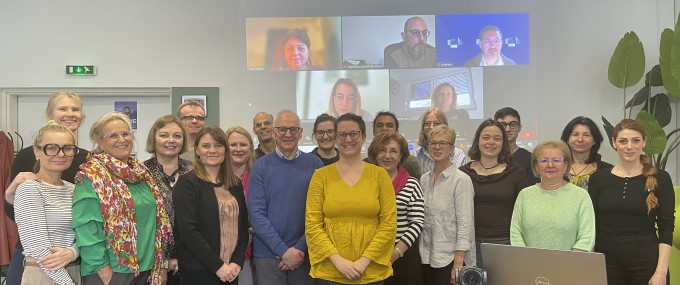Contact
Riccardo Bommarco, Professor
Department of Ecology, SLU
riccardo.bommarco@slu.se, +46 18 67 24 23
Guideline for farm-specific or crop-specific rules for mitigating pesticides impacts while ensuring sustainable agriculture
The Agrowise project is a part of the "LIFE Program" with the objective of providing guidelines to each member state for implementing the Sustainable Use Directive (SUD) rules at the farm and crop- specific level. This project takes part in the "Farm to Fork strategy" which aims to achieve a 50% reduction in chemical pesticide use by 2030.
Led by the French Institute "INRAE", this eighteen-month project brings together research organizations from 8 European countries. The project will collect, harmonize, and propose scientifically-backed methods and strategies to reduce pesticide use and risks for various crops. The guidelines will promote innovative approaches to crop protection by limiting the use of chemical pesticides and following Integrated Pest Management (IPM) principles.

The Agrowise-team.
• June 2024: the INRAE team went to Poland to meet the team members of each institute that is part of the Agrowise consortium: Instytut Ogrodnictwa - Państwowy Instytut Badawczy (InHort) in Skierniewice and Instytut Ochrony Roślin - Państwowy Instytut Badawczy (IOR-PIB) in Poznań . This travel allowed discussions to take place concerning the expectations of each party in terms of expected and available data, assistance on any aspect of the research and results. Touring each institute and their research fields allowed the INRAE team to have a clearer idea of what is the scope of the data available in Poland and to set up a schedule for the future actions, in particular the task 5.3 for which InHort is in charge, finally, to know the state of the IPM principles in Poland.
• July 2024: online meeting between the INRAE team and various experts (group 5.2) in order to define a framework and the objective of our collaboration as well as the calendar of the future meetings. The reason of this working group is to co-create guidelines that are one of the key deliverables of the project.
• August 2024: online interview with each member of the former SUD group (group 5.1) to prepare the September meeting that will take place in Brussels.
• September 2024: the INRAE team will go to Brussels to meet the science experts group and the group of Member States representatives.
WP coordinator: INRAE
This work package will aim to ensure the success of the project by creating an efficient coordination amongst all the members of the consortium. To achieve this, we will implement regular communication channels, decision-making mechanisms and risk management plans. Monthly meeting will be held to track progress, and a steering committee will be responsible for prioritizing partners involvement.
The steering committee will consist of the coordinators of each work packages, of the project coordinator and a representative of each partners.
The data management activities will work towards developing a comprehensive plan to establish organized structures and efficient workflows for future data management.
WP coordinator: SLU
WP coordinator: UniBo
The WP seeks to examine the implementation of the IPM practices and systems within the member states. The objective includes measuring pesticide usage, evaluating its environmental consequences, recognizing required and discretionary practices, and assessing the oversight mechanisms currently in place.
WP coordinator: Teagasc
This WP focuses on the development of tools and mechanisms to provide farm-specific or crop-specific tailored regulation. Through a comprehensive analysis of current practices, policies, and frameworks, guidelines will be created to facilitate the implementation of efficient and flexible rules. Close cooperation with national authorities and stakeholders is key to achieve our objectives.
WP coordinator: INRAE
This work package is dedicated to the dissemination of knowledge and resources to the member states and relevant authorities. A collaborative methodology will be applied, engaging national authorities in the development of both mandatory and discretionary regulations. Valuable input will also be gathered from stakeholders, such as agricultural organizations and industries, in order to guarantee thorough and satisfactory guidance.
WP coordinator: INRAE
Examine the newly established Integrated Pest Management (IPM) regulations proposed by the consortium members for collective implementation by all Member States.
Finalize the drafting of comprehensive guidelines for the European Commission to assess the effectiveness of "National
Plans of Action" in alignment with the goals of the Sustainable Use of Pesticides Directive, the Farm to Fork strategy, and the Green Deal initiative.
Develop a cohesive document outlining and presenting these guidelines to educate Member States and engage experts' networks involved in national planning efforts.




Riccardo Bommarco, Professor
Department of Ecology, SLU
riccardo.bommarco@slu.se, +46 18 67 24 23